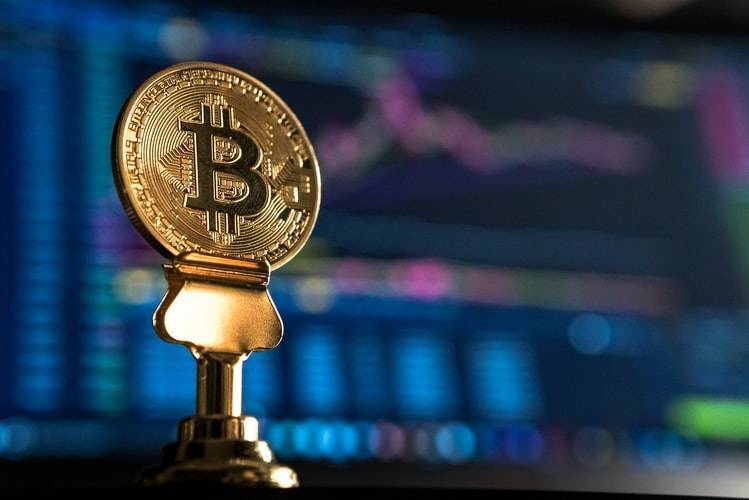Just a few months ago, cryptocurrency enthusiasts were hopeful that Washington would move towards digital assets. However, recent ransomware attacks demanding Bitcoin, sharp market fluctuations, and reprimands from regulators have undermined this optimism. The timing could not be worse, as policymakers are preparing to issue a number of critical rulings regarding virtual tokens in the coming months, decisions that may reveal the extent of the gap the industry must navigate.
Approval for a Bitcoin exchange-traded fund (ETF) could be on the verge of completion, allowing for the presence of cryptocurrency investment funds and granting financial companies banking licenses. For Bitcoin supporters, these setbacks fuel fears regarding one of their top priorities facing a potential ban from federal agencies and tighter regulatory actions from lawmakers. Evidence is mounting that Congress is moving in this direction, as Senator Mark Warner, a Democratic representative from Virginia, stated last month that cryptocurrencies "require a certain level of regulation," a view repeated by Senator Elizabeth Warren last Wednesday.
Democratic Senator from Massachusetts mentioned in an interview with Bloomberg TV: "Frankly, regulators and Congress are behind the curve and underfunded. We need to catch up with the direction these cryptocurrencies are heading." The harsh correction began in May when Gary Gensler, the head of the Securities and Exchange Commission (SEC), urged lawmakers to pass legislation regulating cryptocurrency exchanges, arguing that the lack of oversight constitutes a serious threat to American investors. These comments shocked Bitcoin supporters who expected Gensler to be an ally, as he, unlike most government officials, is well-versed in virtual currencies.
The Colonial Pipeline hack, which caused fuel shortages across the eastern United States, highlighted the implications of cryptocurrencies on national security, as the perpetrators demanded a ransom in Bitcoin, similar to previous breaches. Gas lines are expected to attract lawmakers' attention as well, and increased scrutiny could raise concerns among some on Wall Street regarding further embracing assets routinely associated with illicit transactions. The Justice Department managed to recover most of the Bitcoin paid by Colonial by tracing transactions on the public Bitcoin ledger, showcasing how technology can aid law enforcement agencies. Nevertheless, Senator Warren argued that the main advantage of cryptocurrencies is their ability to allow individuals to transfer money surreptitiously, rendering coins a "safe haven for criminals."
Warren's viewpoint was underscored on Wednesday when JBS USA revealed it paid $11 million to hackers who forced the world's largest meat producer to shut down all its beef plants in the U.S. Another issue is that Bitcoin has lost more than a third of its value since early May, with a series of negative tweets from Elon Musk contributing to this decline, reinforcing cryptocurrency critics' claims that symbolic prices are highly volatile and easily influenced by social media, making them unsafe for inexperienced investors. The frenzy surrounding non-fungible tokens and Dogecoin, a cryptocurrency created as a joke, has amplified these concerns.
Kristin Smith, the executive director of the Blockchain Association trade group, stated: "We can't deny the potential impact of negative media narratives on regulatory and legislative discussions in the capital in the short term." Much of the funding surge in cryptocurrency hinges on Gensler, who previously taught courses on digital currencies at the Massachusetts Institute of Technology, as the SEC will determine whether a Bitcoin ETF will trade in U.S. exchanges.
The ETF is viewed as a game-changer, as it would allow investors to trade in and out of the world's most popular cryptocurrency throughout the day without exposing them to the risks of having to store their tokens. By adding another layer of security, consumers could purchase ETF shares from heavily regulated brokers instead of buying Bitcoin from unregulated exchanges. Mutual funds and institutional investors could inject more money into crypto assets through ETFs.
The SEC spokesperson declined to comment. During the tenure of Gensler's predecessor, Jay Clayton, the SEC blocked numerous ETF applications, arguing that Bitcoin is too volatile and prone to manipulation. Stephen Mirando, a former Treasury Department official during George W. Bush's administration, noted that Gensler's comments about the lack of investor protections in cryptocurrency exchanges suggest he may share some of these concerns. Mirando, managing partner at Beacon Policy Advisors, which tracks regulatory and legislative proposals in Washington, said: "It's a significant shift from four months ago when everyone was saying: Gensler taught a cryptocurrency course at MIT, so we’ll get approval for all our applications."
The SEC faces a June 17 deadline regarding one proposal to list an ETF from VanEck Associates Corp., one of several applications currently being considered. The agency has previously delayed decisions on the VanEck proposal, and with Washington's increasing interest in cryptocurrencies, it may opt to revisit the topic, potentially delaying decisions on the other five applications, but the agency must respond to each by July 16.
The SEC has expressed concerns about mutual funds investing in Bitcoin futures contracts, which is permitted under current rules. The agency warned in a statement released on May 11 that it would scrutinize cryptocurrency holdings. In the coming months, the SEC will review proposals for four mutual funds that heavily invest in Bitcoin futures contracts from CME Group Inc. One of the funds, Stone Ridge Trust NYDIG Bitcoin Strategy Fund II, plans to use derivatives to seek cryptocurrency exposure of up to 125% of the fund's net assets, according to its registration statement. The fund hopes to begin offering the product to investors in July, but this may be delayed amid the SEC's review process.
Patrick McCarthy, a former general counsel in commodity futures trading who now teaches a course on virtual currencies at Georgetown Law School, said: "One of the effects of the government's intensified focus on cryptocurrencies—largely driven by the Colonial hack—may push legislators to overcome the gridlock that has stalled legislation so far." Regardless of any actions the government may take, Smith from the Blockchain Association expressed hope that regulators and Congress will consider the benefits of cryptocurrencies. She said: "Serious policymakers generally look at the underlying fundamentals of an industry when reviewing laws, brainstorming new legislation, or crafting new regulations. The same should apply to the cryptocurrency industry, despite the recent storm of negative headlines."




